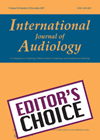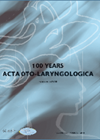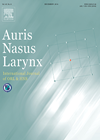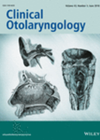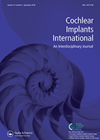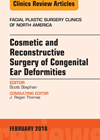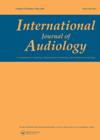
Journal Reviews archive for September 2018
Attitudes towards leisure noise
Noise is a very common reason for hearing loss. The question is whether young adults realise the danger of developing a noise related hearing loss. The aim of this study was to evaluate the attitude towards leisure noise and noise...
Does stress and anxiety worsen idiopathic sudden hearing loss outcomes?
There have been suggestions that the natural course of the idiopathic sudden sensorineural hearing loss (ISSNHL) is not affected by intensive therapy. There is speculation as to whether unknown factors affect the treatment prognosis. This is a retrospective study of...
Is non-allergic rhinitis as bad as allergic?
Non-allergic rhinitis (NAR) occurs when rhinitis symptoms are not associated with allergic, infective or anatomical reason. It is responsible for almost half of all cases of rhinitis and affects around 300 million worldwide. Assessing NAR patients’ quality of life (QoL)...
Hearing loss and QOL
This article evaluates the impact of hearing loss and its rehabilitation on the quality of life (QoL) of adults. The authors suggest that the currently used scale, Aphab, is long, complicated and does not take into account minor changes. The...
Merocel vs Cutanplast Anal packing
This study compared two different nasal dressings after septoplasty. Seventy-six patients acted as their own controls by having one nostril packed with Merocel and one nostril somewhat improbably with Cutanplast Anal (gelatin sponge). It seems that the gelatin sponge was...
Red flag head and neck cancer symptoms
This was a prospective study of 1589 patients that were enrolled in the Scottish Audit of Head and Neck Cancer between 1999 and 2001. It recorded their presenting symptoms and assessed their long-term survival with respect to symptoms and subsites...
Milestones profile for children with cochlear implant
Over the last eight years, Nottingham auditory implant programme have developed and validated a profile of auditory milestones for use with children receiving bilateral cochlear implants under the age of two years. The structure of the Nottingham Auditory Milestones profile...
Grading dysphagia as a toxicity in treating head and neck cancer
Common Terminology Criteria for Adverse Events (CTCAE) is a system used by clinicians to grade the toxicity of oncology treatments in a standardised manner. Dysphagia is perhaps the most common long-term toxicity of head and neck cancer treatment. Currently, a...
Prominauris: Which surgical technique to use?
Otoplasty accounted for 3.2% of all plastic surgical interventions, and 2.6% worldwide in 2015. Patient satisfaction ranges above 95% for prominent ear correction despite the myriad of available techniques in the literature associated with highly variable outcomes. The authors split...
Measuring the ‘impact’ of preoperative immunonutrition
Using preoperative nutritional supplements as part of ‘enhanced recovery’ in surgical patients is not a new concept. This interesting paper looks at the latest development in optimising patients undergoing head and neck oncological surgery. Immunonutrition (Nestle’s ‘Oral Impact’ in this...
Applying ‘Sal classification’ to parotid cytology to replicate the success of the Thy classification system
The usefulness of the Thy classification in thyroid gland disease has led to attempts to generate a similar cytology classification for parotid lesions. However, the accuracy of fine-needle aspiration cytology in salivary gland disease is more variable because of the...
Tinnitus association with psychiatric and personality disorders
Tinnitus attracts large interest among researchers all over the world due to its negative psychological side-effects. This study aimed at investigating lifetime and current prevalence of psychiatric and personality disorders in patients with long-lasting and distressing tinnitus. Participants included 49...

